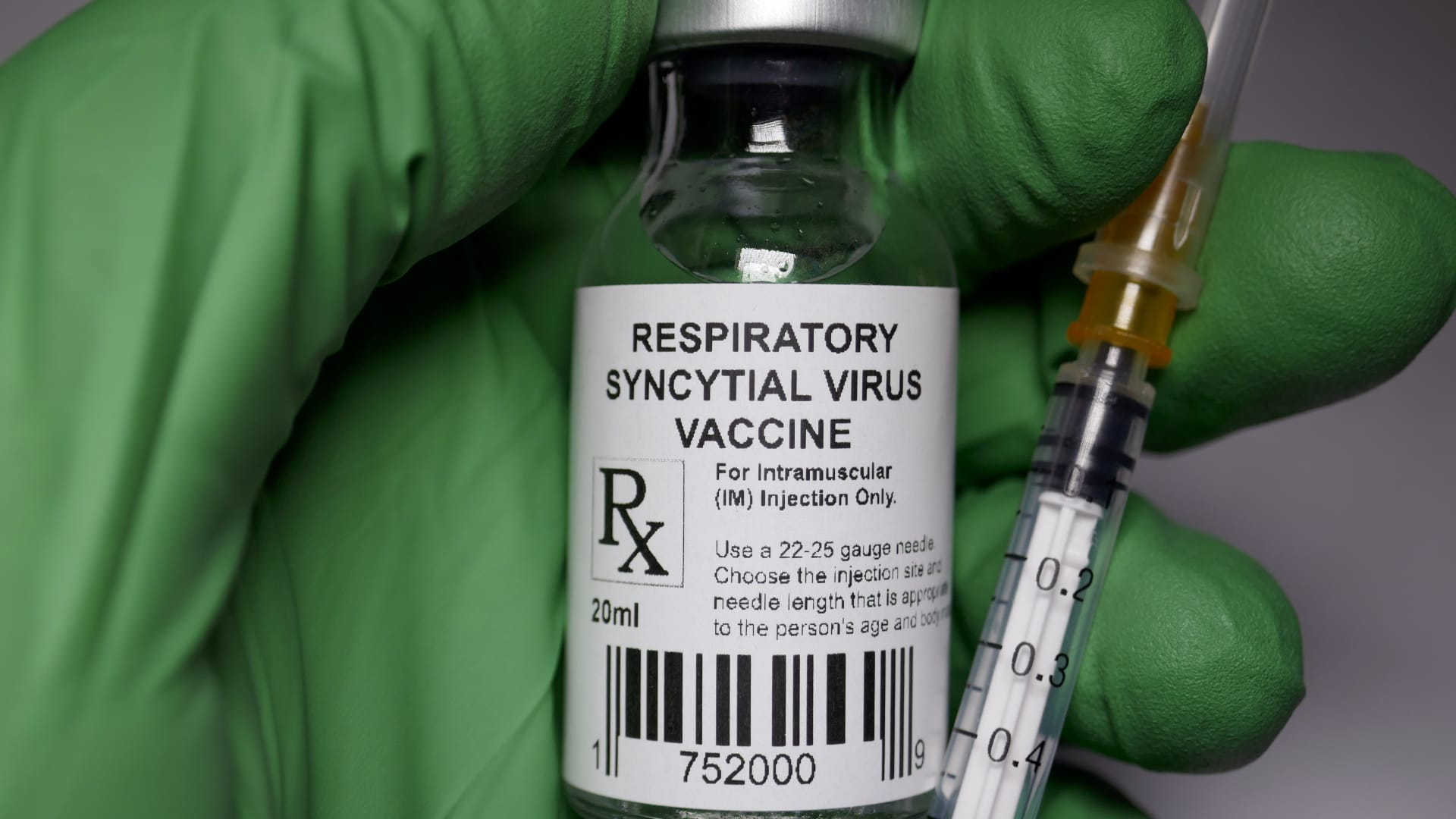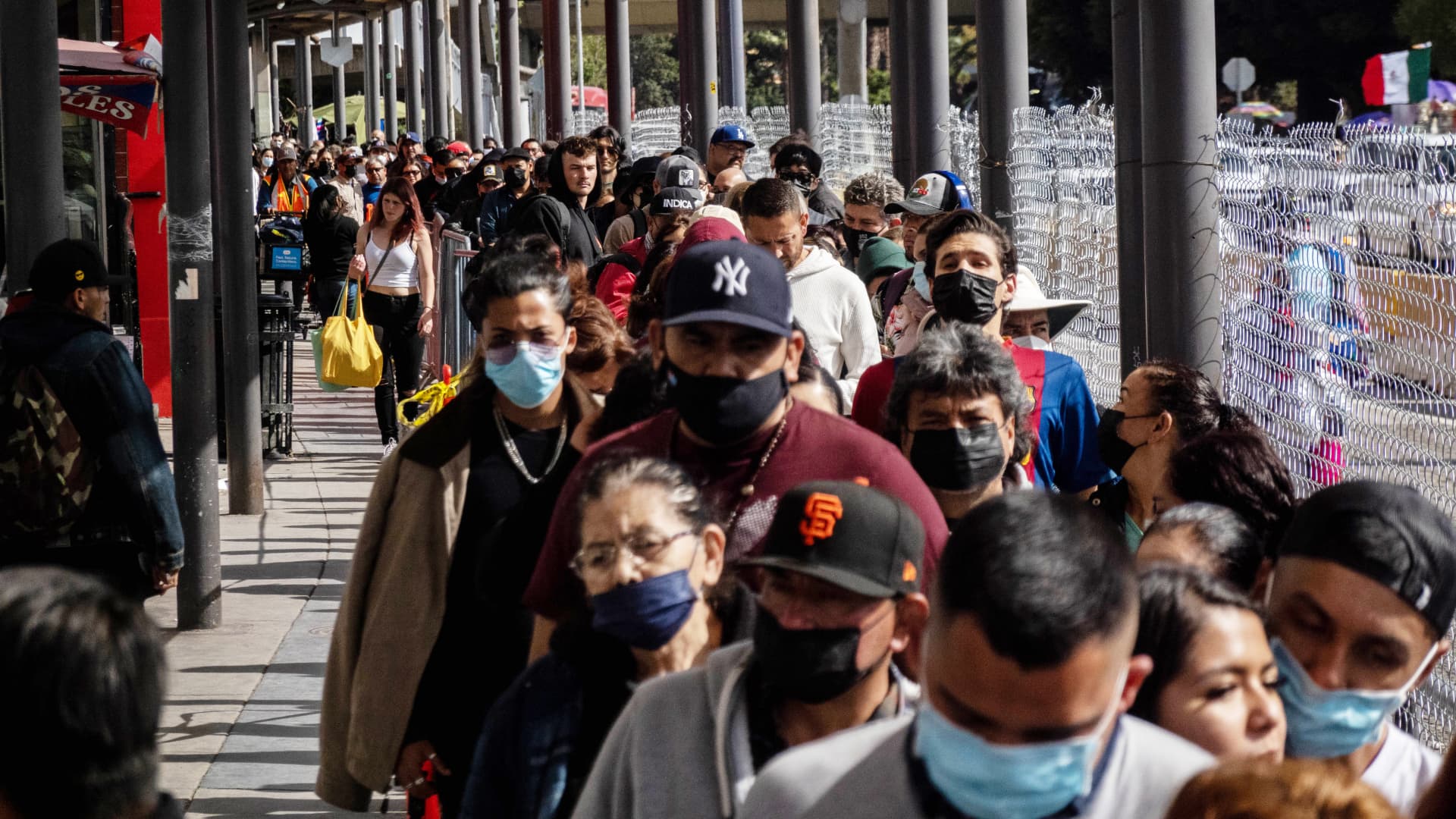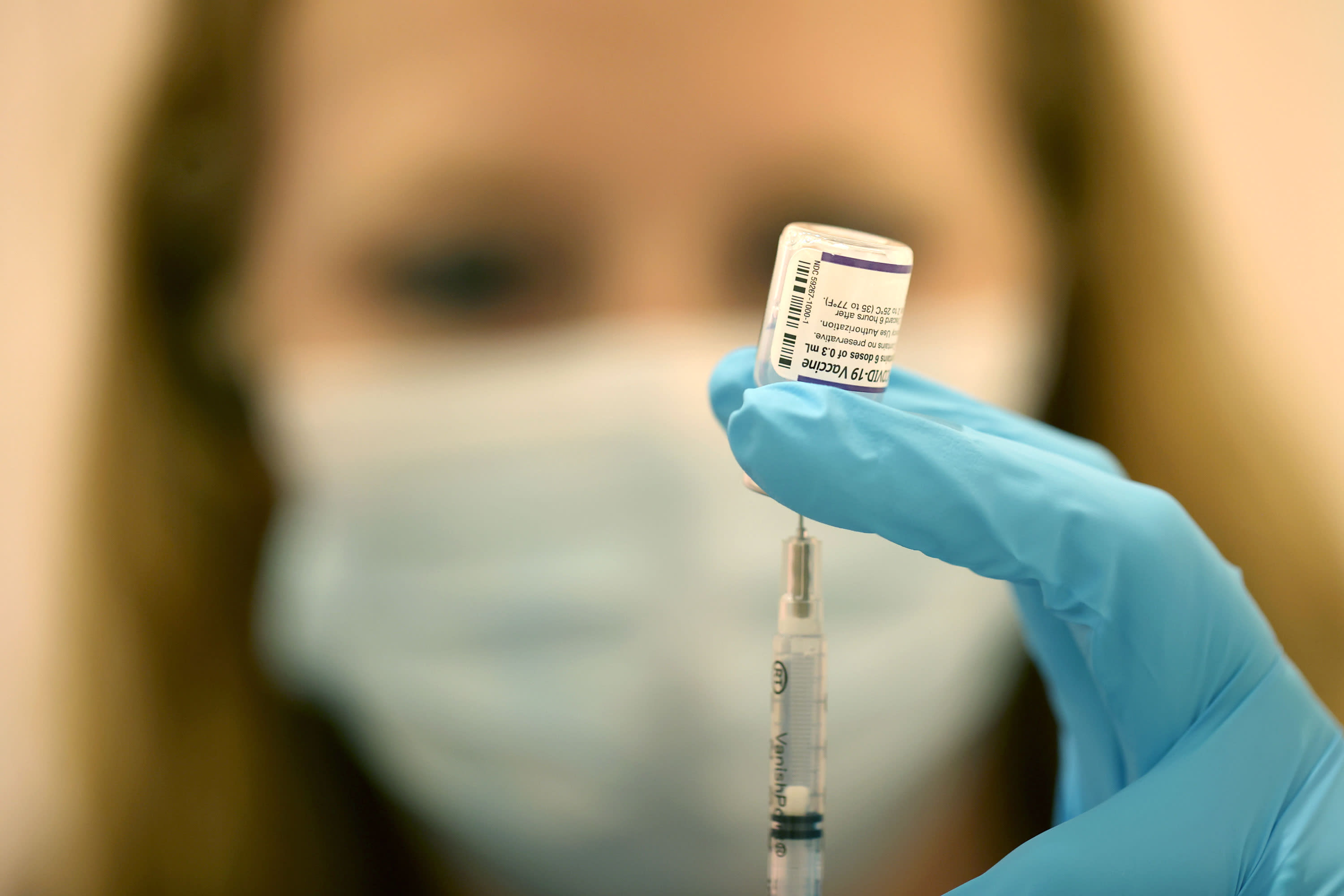FDA advisors recommend Pfizer’s RSV vaccine for infants but raise safety concerns
The FDA is slated to make a decision on whether to approve Pfizer's shot in August before respiratory syncytial virus season in the fall.

Respiratory syncytial virus viral vaccine under research.
Hailshadow | Istock | Getty Images
The U.S. Food and Drug Administration's independent panel of advisors Thursday recommended full approval of Pfizer's vaccine that protects infants from respiratory syncytial virus, but raised safety concerns over premature births that may be tied to the shot.
The committee unanimously said the vaccine efficacy data was sufficient. Ten of the advisors said the safety data on Pfizer's shot was adequate, while four said it was not.
"If the vaccine actually lives up to the data we've seen today, I can guarantee many infants and their parents will breathe easier in the coming years," said Dr. Jay Portnoy, medical director at the Children's Mercy Hospital in Kansas City, after voting in favor of the safety and efficacy of the shot.
Dr. Paul Offit, a vaccine expert at the Children's Hospital of Philadelphia, said he doesn't believe there is enough data that indicates the safety of the vaccine is "reassuring."
"If you're in any sense risking premature births with this vaccine, I think there'll be a big price to pay," said Offit, who voted against the shot's safety data.
Adam Berger, the director of clinical and healthcare research policy at the National Institutes of Health, voted in favor of the shot's safety and efficacy, but said Pfizer's post-marketing studies need to examine the risk of premature births.
Post-marketing refers to studies conducted on a product after it receives FDA approval.
The FDA typically follows the advice of its advisory committees but is not required to do so. The agency is slated to make a final decision on the shot in August, right before RSV season in the fall.
If approved, Pfizer's jab would become the world's first vaccine that protects infants against RSV, a goal scientists have been working toward for decades.
The FDA earlier this month approved the first RSV shot for adults ages 60 and older from GlaxoSmithKline. The agency is expected to make a decision within weeks on Pfizer's other RSV shot for that same age group.
RSV is a common respiratory infection that causes cold-like symptoms. Older adults and younger children are particularly vulnerable to more severe RSV infections.
Each year, the virus kills 6,000 to 10,000 seniors and a few hundred children younger than 5, according to the Centers for Disease Control and Prevention. About one out of every 100 children younger than 6 months of age with an RSV infection may need to be hospitalized, the CDC said.
Pfizer's shot for infants is administered to expectant mothers in the late second or third trimester of their pregnancy. The single-dose vaccine triggers antibodies that are passed to the fetus, which provides it with protection against RSV from birth through the first six months of life.
Weighing safety and efficacy data
A phase three trial found Pfizer's shot was nearly 82% effective at preventing severe disease from RSV in newborns during the first 90 days of life. The shot was also about 70% effective during the first six months of the baby's life.
But the advisory panel's concerns stemmed from safety data in that trial.
A slightly higher number of premature births occurred among mothers who took the shot compared to those who received a placebo: 5.7% versus 4.7%, respectively.
Both Pfizer and the FDA said the difference does not appear to be statistically significant.
Most infants, even when born prematurely, were also delivered after 34 weeks of pregnancy, just a few weeks shy of their due dates.
But Dr. Hana El Sahly, who chairs the FDA advisory committee, said "even if it is late preterm delivery, the fact that we're putting them into preterm delivery while we're sitting here debating the matter intellectually is not trivial."
Premature deliveries aren't a new issue when it comes to RSV vaccines for infants.
Pfizer's rival GSK halted its own trial on its RSV shot for newborns after noticing concerning data on preterm births and neonatal deaths, or when a baby dies during the first 28 days of life.
Offit also said GSK's trial is "hanging over" Pfizer's own RSV shot for infants.
"If GSK truly abandons a program on a similar, almost identical vaccine, that is going to hang over [Pfizer's] program," he said during the meeting. "I think it does need to be addressed."
Portnoy added preterm deliveries could potentially dampen the benefits of the shot.
"The problem is if the child is born earlier, that also reduces the efficacy of the treatment because earlier birth means less antibodies are transferred," he said. "So, this is a very complex thing because now the harm actually makes the benefit less so. There's an interaction between the two."
But some panel members cast doubt on whether there's a clear causal relationship between the vaccine and preterm births.
"Am I concerned about the preterm birth imbalance? Yes. Am I convinced that it's real? No," said Dr. Daniel Feikin, a scientific advisor and respiratory diseases consultant, who voted in favor of the shot's safety.
Representatives from Pfizer also pushed back on the safety concerns, emphasizing the benefits of the shot outweigh the risks.
"Certainly, in our eyes, there is no definitive evidence to suggest there is a risk of prematurity," said Dr. William Gruber, Pfizer's senior vice president of vaccine clinical research and development. "So the question is, do you hold hostage the potential benefits of the vaccine for something which you have no statistical significance at this point?"
Some of the participants' children also had low birth weights and experienced developmental delays, the FDA staff review said.
Most of the more than 3,000 mothers who received the shot in the trial experienced mild to moderate adverse reactions, according to the FDA staff's review of data.
The most common reactions were fatigue, muscle pain, headache and pain at the injection site. Most reactions resolved within three to four days after vaccination, the staff review noted.

 Lynk
Lynk 
































